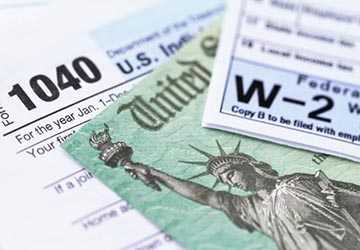5 Steps to Slash $1,000 or More from Your Annual Tax Bill
Do taxes stress you out? Preparing our taxes can be confusing, tedious, and downright scary if we owe money to the IRS.
Between federal and state taxes, social security, medicare, and other deductions, a massive chunk of our hard-earned paychecks goes towards taxes. And even if you're expecting a refund, you've given the government an interest-free loan all year long by overpaying.
But what if I told you that you could get money back with some intelligent planning - sometimes over $1,000? Read to learn five legal ways to slash your tax bill and put more money in your pocket.

5 Steps to Save $1,000 on Your Taxes
By making a few intelligent adjustments to your taxes, you can easily save over $1,000 per year. Just imagine what you could do with an extra $83 per month.
You could finally pay off some nagging bills, make extra payments on your student loans to pay them off faster or boost your retirement contributions.
Either way, who couldn't use extra money in their bank account?
Let's look at five legal ways to reduce your tax burden this year...
1.Increase Your Retirement Contributions
Your contribution to employer-sponsored retirement plans like 401Ks or IRAs reduces your taxable income.
Every dollar you contribute could save you up to 37 cents on your taxes, depending on your tax bracket.
That means contributing an extra $200 monthly to your retirement could net you over $800 back from Uncle Sam. It can add up over time!
And don't worry—retirement contributions come out pre-tax, so you won't even miss the money in your paychecks. Plus, your money has grown tax-deferred for decades.
It's one of the only guaranteed ways to boost your savings and slash your taxes at the same time. That's what we call a "tax win!"
2.Max Out Health Savings Accounts
You likely qualify for a health savings account (HSA) with a high-deductible health insurance plan.
The money you contribute to an HSA gives you a tax deduction AND can be withdrawn tax-free at any time for qualified medical expenses. It's one of the best savings vehicles out there.
For 2024, you can contribute up to $3,850 if you have individual coverage or $7,750 for family coverage. At a 22% tax rate, that could mean over $800 in tax savings!
And that tax savings is year after year. Plus, the money rolls over and collects interest if you don't spend it.
Please save all medical receipts in case you are audited, even if it is 5+ years from now.
3.Work From Home Tax Credits
Over the last few years, working from home has become the norm rather than the exception for millions of office workers and other professionals. If you work from home, even if it's only part-time, you can take advantage of some nice tax credits.
You can deduct home office expenses like a portion of rent, utilities, internet, etc, up to $1,500 based on the percentage of your home being used for business purposes.
The simplified home office deduction can mean over $300 back in your pocket.
Please consult IRS publication 587 to understand what qualifies as business use of your home, and keep excellent records of expenses in case of audit.

4.Education Tax Credits
There are several education tax credits and deductions to offset the rising costs of higher education. Things like:
● American Opportunity Credit
● Lifetime Learning Credit
● Student Loan Interest Deduction
● Tuition and Fees Deduction
If you, your spouse, or your dependents currently enrolled in higher education, look into these. You could knock thousands off your tax bill over four years!
For example:
● The American Opportunity Credit is worth 100% of the first $2,000 qualifying education expenses, plus 25% of the next $2,000 yearly.
● The Lifetime Learning Credit is worth 20% of the first $10,000 spent on higher education.
Just understand the eligibility rules and save all school invoices and receipts!
5.Increase FSA Contributions
Similar to HSAs, flexible spending accounts (FSAs) allow you to set aside pre-tax money from your paychecks into an account to reimburse yourself for qualified medical expenses.
The contribution limits for 2024 are up to $3,050 per individual or $6,100 for families. The tax savings from FSAs can quickly amount to over $500 per year.
Prescription drugs, copays, dental work, chiropractor visits, and prescription eyeglasses all count as qualified medical expenses.
Save all your medical receipts in case your employer asks for proof. Also, be conservative in the election amount because unused FSA funds are typically forfeited at the end of the year.
Conclusion
Taking advantage of pre-tax retirement and health accounts, education incentives, or working-from-home write-offs makes it possible to legally put an extra $1,000 or more back in your pocket.
And I only scratched the surface here. You can use dozens more deductions and little-known notable credits in the IRS tax code to your benefit.
The key is to be intentional and strategic about your tax planning. Don't wait until the last minute to file your tax return.
Consult with a tax professional to understand what tax minimization strategies make the most sense for your unique financial situation.
Then, well before year-end, make the appropriate adjustments to your income withholdings, pre-tax accounts, deductions tracking, etc.
Every dollar you can legally shield from taxation boosts your retirement savings, rainy day fund, or fun money budget.


